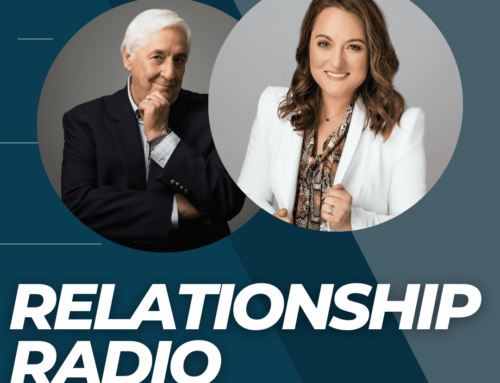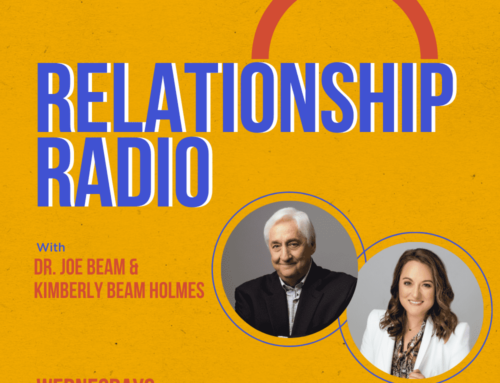Think about the number of people that you know. These are the people you go to church with, work with, and the people you know, socially — even your relatives.
Think of the marriages that have been affected by infidelity. Either the husband or the wife, sometimes both, were involved with another person, at least emotionally, to the point where they violated their marriage.
You can name people right now who have done this or who have been affected by this. It may be that you have been affected by your spouse’s infidelity. Or it may be that you’re the spouse that’s reading this, and you’re the one who has been unfaithful to your spouse. If you are, please stay with us. We’re not trying to condemn you.
We’re trying to address a much larger problem we’re facing.
It’s worldwide, but I’m speaking primarily about America right now. Infidelity is a problem that we’re facing that’s causing all kinds of difficulty. And maybe you’re thinking, “That sounds like my situation. Why does my spouse love someone else?”
Why does my spouse love someone else?
What’s happening is partly due to the change in our culture over the last 50 years. In the 1960s, the message began to change from, “This is what’s right. And this is what’s wrong.” Instead, it evolved to “What you really should do is whatever makes you feel good at the moment.”
You’ll hear the phrase: “Do what makes you happy.” But, unfortunately, there’s no realization that happiness is typically related to circumstances. And that if those circumstances change, then your level of happiness tends to change as well. Instead of a moral code that defines right and wrong, it evolved into each person becoming their own moral code. And when you live in a culture where it’s acceptable to be unfaithful to your spouse, the temptation to do so becomes much, much stronger.
As a result, the number of people willing to participate in that unfaithfulness continues to grow. More men and women are willing to participate in that because the thought is, “This makes us both happy. And even though I know that you’re married to someone else, this was meant to be because it makes us feel good at the moment.”
So part of it is the culture, but also, it’s more attainable. It’s easier to do than work out the hard things. And then consider that about half of the adult population of America is single, and a lot of them are desperate for a companion.
Not every person is like that.
But some single people feel so lonely and abandoned that if someone came along that appears to fulfill their needs, they will choose to engage, even if it isn’t healthy to do so. Marriage doesn’t solve this problem. Even if a person is married, they might believe at the moment, “This person is just right for me.” So it becomes irrelevant that either person is married. And, if the spouse involved in this wants to be involved, they’re likely to lie.
They’ll confess to being married but talk about a separation or upcoming divorce. And we live in a culture that makes it much easier to brush off knowing the details and accept the good feelings of the moment.
There are several different kinds of affairs.
First, there’s the short-lived affair, in which no one is very connected emotionally to the other person, and it’s primarily about the situation. It could be about sexual desire, or it could be ego, or even flirting that got out of hand. It can be vengeful and a way to get back at a spouse in some cases. The key to the short-lived affair is that it doesn’t last that long. It can last several months and even past a year on rare occasions. And sometimes it’s a one-night stand, and it’s over. So it’s not an emotional connection to the other person; it’s about the situation itself.
Some affairs occur because a couple enters into an open marriage.
Sometimes, they call it “the lifestyle” or “swinging.” The agreement is, “You can be involved sexually with whomever you wish, as long as you love me and are married to me .” We get couples like that in the Couples Workshop because inevitably, one winds up emotionally connected to somebody else and wants out of the marriage.
They’re sexually involved with different people in different situations, with the spouse’s consent, and it just makes sense, at some point, that they’ll find a person with whom they connect emotionally. We do the best we can to help them save the marriage, and we tell them that if they go back to that lifestyle, it’s probably going to have a negative long-term effect. |
Lastly, the third kind of affair is what we refer to as the “relationship affair” or “emotional affair.” There’s a name that goes with it. Most people call it romantic love or true love. But Cinderella and Prince Charming only exist in fairytales. And there’s a word for it. The term was coined back in the 1970s by Dorothy Tennov, a Ph.D., who studied it extensively and wrote a book about it. And she named it limerence.
There is a lot of research on limerence.
We’re not going to explain everything we can to you now. But quite often, this happens to a person that’s not necessarily looking to cheat on their spouse. They’re not looking to be unfaithful. But, still, they have some need that is being unfulfilled, it could be a problem in the marriage itself, and they’re frustrated with that problem.
Whatever it is, some vulnerability exists, whether it’s because the marriage has problems or the person has vulnerabilities that may have started back in childhood that make them need to feel intense emotion. And when they married, they probably felt that intense emotion for the person they married. But all of us know that the intense emotion of the early relationship tends to modify over time, and the feeling tends to come down. So that it can still be a very deep, abiding emotion, but it doesn’t have the ecstasy and that same sense of thrill and excitement over time.
We simply get used to each other.
And that excitement that Dr. Helen Fisher, a Ph.D., has written about extensively is designed to draw us together. As far as I know, Fisher is not a religious person. So she doesn’t refer to God. She would refer to nature. And that in nature, the thrills draw us together but were never intended to keep us together. Because people who operate in that ecstatic sense can’t maintain it forever, it’s an impossibility, and it will diminish and go away.
When you talk to a person in that situation, they may deny it.
They might say, “This is something that I feel that nobody else has ever felt. I can’t explain the amazing sensations I’m feeling. I’m going to feel this way about this person for the rest of my life.” And quite often, they don’t remember they had very similar emotions toward the person they’re married to at the beginning of their relationship.
They don’t remember because the intensity of these emotions can rewrite history.
They can remember only negative or neutral things, but mostly negative about the spouse. Many can’t recall the initial excitement or ecstasy with their spouse. They only feel the way they do now, with this other person, and any attempt to convince them that that’s incorrect will be met with opposition.
It’s incredible how many counselors and therapists have never heard of limerence.
There’s ample research out there. When I left my wife in the 80s, all I could remember were the negative things that had happened in our relationship. I was confronted by a counselor who had a letter that I had written to Alice back when we were dating. And the intensity of the emotion expressed in those letters. I did feel these things for her, but I didn’t believe my own handwriting because I’d rewritten history.
Sometimes we vilify the spouse and make them into an evil person. Everything about them is terrible. We don’t necessarily do this consciously; it’s happening more in the back of the brain if you will. It becomes part of the justification for leaving them and going to this new exciting lover you feel this intense limerence for. We don’t call it limerence. Usually, we call it “falling madly in love.”
But even though you might not believe it, that relationship has a shelf life.
It will end.
What’s making it so intense are some things happening inside your brain. Dr. Fisher’s research has been fascinating about this. She and her colleagues found that several things are happening. When you’re in that state, the serotonin levels in your brain decrease, which intensifies fear. The stronger the fear, the stronger the passion. You may ask, “What are you afraid of?” But if you step back and think about it, you might be afraid you won’t end up with this person. You might be afraid that somehow you’ll lose them.
And at the same time that the serotonin is going down, which makes you apprehensive and afraid, your dopamine is going sky high whenever you feel the other person is reacting to you the way that you want them to. When they do that, when you think that they’re connecting with you emotionally, whether it’s happening or not, you’re going to feel amazing. So, part of what you’re fighting are your own brain chemicals.
Your brain wants very badly to keep this up and will convince you that you’ve always wanted to feel this way. But it’s going to end.
Whether it lasts a few months or a couple of years, it’s going to end.
The spouse standing for the marriage, the one who wants things to work, sees their wife or husband, so overcome with these intense emotions. They don’t know how they could be left behind, and they may start to think that something is wrong with them. Of course, nobody’s perfect, but there might not be much wrong with you at all. The relationship might need some work, however. There’s no doubt that you need to fix those things.
The spouse that’s in limerence is imprisoned, in a sense, by their brain chemicals, and they crave that ecstasy. They will seek it with all their being. That could mean talking to the other person, being with the other person, or just daydreaming about the other person; they crave that ecstasy and will go for it. But it will end.
At Marriage Helper, we believe in helping marriages last a lifetime.
Let’s face it: nothing is perfect, especially not marriage. Unfortunately, 1 out of 3 marriages fails because couples wait an average of six years before seeking marriage help. We have helped save thousands of marriages, and we believe that if anything works, this will.
You will never be a part of a more passionate community to the cause of marriage because we believe in the power of forgiveness and fighting for what you have. We have free resources like our mini-course that teaches you how to get your spouse back.
Between our podcasts and youtube videos, we have loads of help out there to get your marriage better than okay. Our couples workshop is a three-day intensive that allows couples to see the breaking points in their marriage and why their communication is not working. Contact us for more details or place a call with one of our client representatives. We want to help your marriage last a lifetime.



